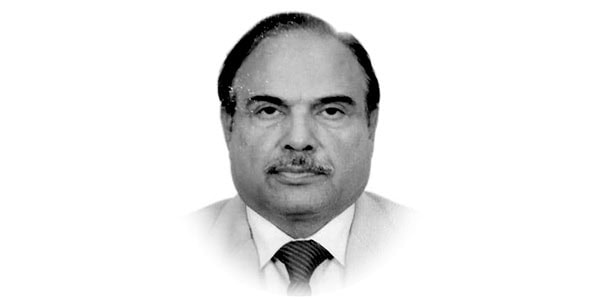Democratic eyes are focusing on Speaker NA
FROM tabling no confidence motion to staging a long march to Islamabad, the opposition looks hell-bent to oust the PTI government.
Other than the agitating political forces, however, it remains unclear who would be the ultimate beneficiary of such drastic moves.
On the one hand, the Pakistan Tehreek-e-Insaf has decided to keep its members away from the National Assembly sitting on the fateful day when voting will be held on the no confidence motion against Prime Minister Imran Khan.
But on the other hand, the ruling party has started threatening its own people with disqualification in case any one violates the party policy.
Ruling party is giving impression that the Speaker National Assembly has the power to disqualify members over floor crossing, but a reading of Article 63-A of the Constitution, titled disqualification on grounds of defecting, shows that the Speaker acts only as a Post Office in the whole process and the Election Commission of Pakistan holds the final authority to make a decision on the matter.
Moreover, the process of de-seating a member takes at least a month as the Election Commission of Pakistan has 30 days to decide the matter after receiving a reference from the Speaker.
And then, the matter will have 30 days to file an appeal before the Supreme Court, which will be required to decide it in 90 days.
As the Speaker is custodian of Parliament he knows all the procedures, according to the legal process, disqualification clause will be applicable only after that member casts his vote and even after disqualification, their vote will remain valid.
I am of the view that the PTI decision to stop its members from attending the session or casting their votes is against parliamentary and democratic norms, as voting is a fundamental right of all members, especially if they do it knowing that they can face disqualification.
As per Article 63-A the Speaker is not obliged to stop members who intend to floor crossing as Article 63-A has clearly defined the modus operandi, against dissidents within any political party.
The vote of no confidence against the Prime Minister has unleashed a fresh wave of political instability in the country.
Ever since the opposition parties submitted the documents to the Speaker National Assembly office, there has been a flurry of activity that is gaining in intensity with each passing hour.
It is also fuelling a bitter and nasty war of words between the government and opposition camps as evidenced by one press conference after another.
The charges being made and the accusations being hurled at the opponents from these platforms range from corruption to anti-national activities.
The situation is expected to deteriorate and could reach ominous levels if this matter drags on.
The Speaker has little time to call the session for the vote of no confidence. The nation awaits with bated breath.
—The writer is former Secretary Election Commission of Pakistan and currently Chairman National Democratic Foundation.










